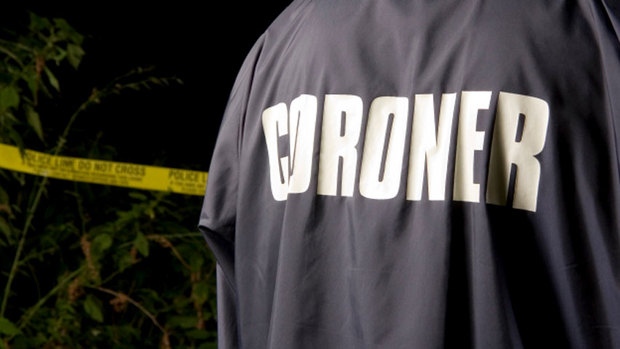Vancouver/Toronto – As of Wednesday May 27, the BC Civil Liberties Association (BCCLA), the John Howard Society of Canada (JHSC), and the Canadian Civil Liberties Association (CCLA) announced they are ending their cross appeals at the Supreme Court of Canada in their respective solitary confinement cases, bringing the litigation to a conclusion. These rights groups have been challenging the use of solitary confinement in federal prisons for years. In 2019, the groups secured significant victories when the top courts of British Columbia and Ontario ruled that federal laws authorizing prolonged, indefinite solitary confinement were inhumane and unconstitutional. Last month, the federal government finally abandoned its attempt to overturn these historic decisions at the Supreme Court of Canada.
The rights groups are pleased their litigation achieved tremendous progress toward ending prolonged solitary confinement. Indeed, the challenged legislation has now been repealed, and the BC and Ontario Courts of Appeal decisions have been relied on in successful class actions brought by prisoners held in isolation. At the same time, the groups recognize that much work remains to be done to end prolonged solitary confinement in Canada. They remain concerned that the government’s new law, Bill C-83 enacted in 2019, will continue to allow prolonged, indefinite solitary confinement in federal prisons under a different name. Additionally, a recent report from the Office of the Correctional Investigator indicates that the Correctional Service of Canada is placing prisoners in solitary confinement to limit the risk of transmission of COVID-19. Further, prolonged solitary confinement continues to be used in provincial jails.
Joe Arvay, QC, OC, OBC (Counsel for the BCCLA and the JHSC) states: “Prolonged, indefinite solitary confinement is cruel and inhumane. This psychologically destructive practice places prisoners at an increased risk of self-harm and suicide. It also exacerbates inequality, as Indigenous and mentally ill prisoners are more likely to be placed in solitary confinement. The BC and Ontario Court of Appeal decisions are clear: prolonged, indefinite solitary confinement has no place in our constitutional democracy.”
Alison Latimer (Counsel for the BCCLA and the JHSC) states: “These cases have shown that Canada must change the way it uses solitary confinement in its prisons. Time limits and independent external oversight are constitutionally required. In the wake of these decisions, solitary confinement should no longer be used to warehouse prisoners with mental health issues and greater care must be taken to ensure conditions of confinement do not exacerbate inequality for indigenous inmates. While these cases challenged federal laws, the reasoning should pave the way for significant change in both federal and provincial institutions across the country.
Jonathan Lisus, Lax O’Sullivan Lisus Gottlieb LLP (Counsel for CCLA) states: “In striking down the solitary confinement regime of the Correctional Services Act because it imposed cruel and unusual treatment, Chief Justice Strathy and Justices Benotto and Roberts brought the rule of law into our penitentiaries and closed a dark chapter in Canadian penal history. This bold decision will spare many of society’s most vulnerable from the gruesome effects of indefinite isolation and bring our prisons into line with international standards.”
Michael Rosenberg, McCarthy Tétrault LLP (Counsel for CCLA) states: “When we started this case there was a law on the books that saw people locked away in tiny, sometimes windowless cells, for twenty-three hours a day or more, every day, indefinitely. Too often they stayed locked away long after they were broken, and tragically, too many took their own lives to escape. The courts have unanimously condemned the practice of prolonged solitary confinement as cruel and unusual treatment that has no place in this country. Because the CCLA, BCCLA, and JHS took a stand, there is now a 15-day hard cap with no exceptions. In abandoning its appeal to the Supreme Court, Canada has finally acknowledged this outside limit on human suffering. We will be watching closely to ensure that our government lives up to its promise to do better.”
Catherine Latimer (Executive Director of the JHSC) states: “The John Howard Society of Canada is enormously pleased by the important decisions from the BC courts establishing the need for independent, external decision-makers for the isolated confinement of prisoners and recognizing the need for safeguards to protect the mental and physical health of those subjected to such damaging confinement. Important Charter rights of prisoners have been recognized and protected. It is our hope that the principles from these decisions will inform all carceral confinement that meets the UN definition of solitary confinement.”
Michael Bryant (Executive Director, CCLA) states: “The Canadian Civil Liberties Association, BC Civil Liberties Association, and John Howard Society are separate organizations that banded together to coordinate a powerful change to Canadian law, fought tooth and nail by both Harper and Trudeau governments, until this 11th hour withdrawal by the feds. The new legal changes wrought through public interest litigation required heroic and brilliant pro bono lawyering by our counsel. Canada is the better for it.”
Noa Mendelsohn Aviv (Equality Program Director, CCLA) states: “After years of fighting – in the courts, at the Ashley Smith Inquest, before Parliament – we still have a long way to go. These legal victories will hopefully send a signal to every person who has been or will be held in inhumane conditions, that there is room for hope, and a reason to continue fighting for justice and fundamental rights.”
Grace Pastine (Litigation Director for the BCCLA) states: “This litigation was made possible by the current and former prisoners who bravely stepped forward to provide crucial evidence. They described spending up to 22 hours a day locked in a cell about the size of a parking spot, their only human contact through the meal slot in the door. The cases are victories for prisoners and everyone who objects to the barbaric practice of prolonged solitary confinement, used by the Correctional Service of Canada as a routine form of prison management. We hope that the government will commit itself to upholding the fundamental rights of prisoners and basic human decency by abolishing this abhorrent practice once and for all.”
Jessica Magonet (Staff Counsel at the BCCLA) states: “We will continue to monitor the implementation of Bill C-83 to ensure the federal government is not circumventing the strong rulings from the BC and Ontario Courts of Appeal. We are also monitoring the use of prolonged solitary confinement in provincial institutions. We will fight to ensure that prisoners are no longer subjected to this cruel and unconstitutional practice. We are extremely disturbed by the numerous reports that the Correctional Service of Canada is using lengthy solitary confinement to isolate prisoners during the COVID-19 pandemic. The health of inmates can and must be protected without resorting to this cruel practice.”
The BCCLA and JHSC are represented by Joe Arvay, OC, OBC, QC of Arvay Finlay LLP and Alison Latimer of Alison Latimer LLP. The CCLA is represented by Jonathan Lisus and Larissa Moscu of Lax O’Sullivan Lisus Gottlieb and Michael Rosenberg, Charlotte-Anne Malischewski, and Jacob Klugsberg of McCarthy Tétrault.












